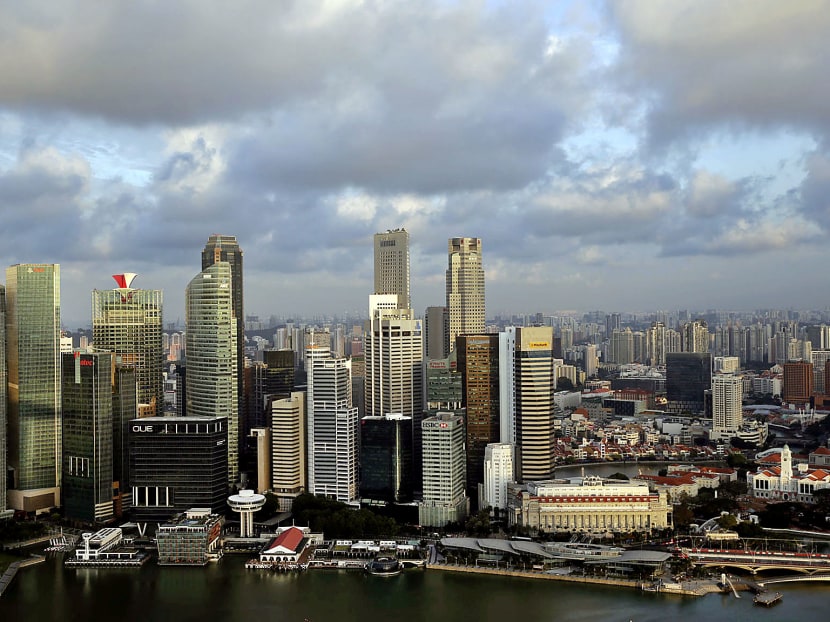New BCA rules for building owners to improve accessibility for less mobile persons
SINGAPORE – Owners of existing commercial and institutional buildings must include “barrier-free” accessibility upgrades when they undergo additions and alterations works, under new rules by the Building and Construction Authority (BCA) that will kick in next year.
SINGAPORE – Owners of existing commercial and institutional buildings must include “barrier-free” accessibility upgrades when they undergo additions and alterations works, under new rules by the Building and Construction Authority (BCA) that will kick in next year.
These are for buildings visited frequently by the public, and are meant to accommodate wheelchair users and others with disabilities.
Buildings such as schools, offices, shopping centres, markets and food centres will have to make the entrance barrier-free, by having a ramp and providing at least one accessible toilet, for example.
Announcing the new requirements at the third Singapore Universal Design Week 2016 on Wednesday (July 27), Minister for National Development Lawrence Wong, who was guest-of-honour at the event, said that older buildings still have accessibility issues, especially for those built before 1990.
As Singapore moves towards an ageing society, features such as ramps and accessible toilets in buildings are important to give users better access, he said, noting that by 2030, one in four Singaporeans will be aged above 65.
The public sector will take the lead for state and public buildings, he added. “We have already been doing so, progressively retrofit and upgrade, and make sure that all public-sector buildings are brought up to scratch and meet UD (Universal Design) standards.”
However, more has to be done in private-sector buildings, Mr Wong said, given that about one in four existing commercial and institutional buildings here are still not accessible.
“This poses a tremendous problem in facilitating seamless travel… so we need to accelerate the progress of (such) improvements for existing infrastructures and buildings,” he said.
Before implementing the new requirements, the BCA will engage and consult tripartite partners such as public-sector agencies, industry players, and voluntary welfare organisations.
To continue supporting building owners who want to upgrade voluntarily and retrofit existing structures, the BCA’s S$40 million Accessibility Fund — which was supposed to expire early next year — will be extended to March 2022.
The fund will cover the construction of accessibility features for the visually and hearing-impaired, such as braille signage and hearing loops.
In addition, building owners can now tap on the fund twice for each development, to a maximum cap of S$300,000.
BCA’s chief executive officer, Dr John Keung, said that the authority aims to have 70 per cent of commercial and institutional buildings in Singapore barrier-free by 2030, and the enhanced Accessibility Fund is to encourage owners to plan gradual improvements to their buildings that are in line with their maintenance and work schedules.
When contacted by TODAY, City Developments Limited (CDL), which owns buildings such as The Arcade and Republic Plaza at Raffles Place and City Square Mall near Little India, said that “raising accessibility to buildings will certainly benefit the community”.
“In support of a more inclusive society, CDL has incorporated barrier-free upgrades in its existing buildings such as Fuji Xerox Towers, Palais Renaissance and Manulife Centre. Some of the upgrades include accessible toilets for the handicapped, stair lifts and platform lifts,” its spokesperson said, adding that the BCA’s Accessibility Fund will encourage and help owners do the necessary upgrades in existing buildings.
Mr Poon Hin Kong, deputy chief development officer (Asia) at CapitaLand, which owns Westgate mall in Jurong East and Raffles City Shopping Centre, said that “all CapitaLand malls and eight office buildings in Singapore already provide barrier-free entry, accessibility on the entry level and an accessible washroom”.
“CapitaLand has incorporated social integration criteria in our Sustainable Building Guidelines, to ensure that such considerations are factored in right from the start of the project development process. These include Universal Design guidelines which ensure that public spaces on CapitaLand properties are accessible to users of different age groups and abilities,” he said.
Mr Poon added that the property group has set a target to achieve “at least a Universal Design Gold award” for all new projects in Singapore.
At Wednesday’s event, National Development Minister Lawrence Wong also launched a new Universal Design Guide for Public Places, for industry professionals to consider designs that would benefit seniors so that they could access buildings and public spaces safely and in comfort.
A “Universal Design Mark” for family-friendly businesses (the BCA-MSF UD Mark), being jointly produced by the BCA with the Ministry of Social and Family Development, will be introduced at the end of this year.







